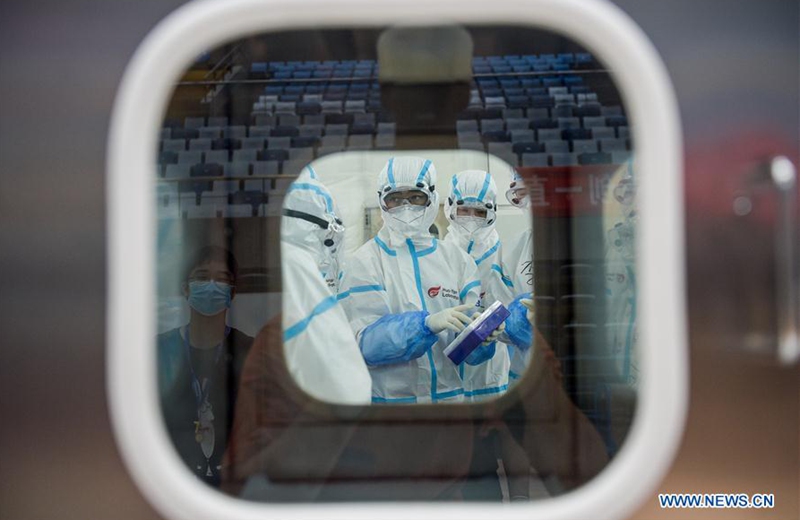Different standards lead to Sweden's false positive COVID-19 results: Chinese biotech firm

Photo: Xinhua
In response to Sweden's concerns over "false positive COVID-19 test kits," the Chinese company in question, BGI Genomics, said on Wednesday that the "high positive rate" was due to the amount of virus inside asymptomatic patients, and different countries and regions define asymptomatic patients differently.
Observers said that as China prefers to use products with high sensibility to distinguish asymptomatic patients and avoid blind spots, low-sensitivity reagents used in some Western countries may cause more infections, as low virus carriers that cannot be detected with low-sensitivity reagents can be infectious.
The company has been in hot water after media reported 3,700 people in Sweden who got tested received a positive result due to a fault in a COVID-19 test kit from Chinese firm BGI Genomics.
The kit could not distinguish between very low levels of the virus and a negative result, the Swedish Public Health Agency said on Tuesday.
In response, the company told the Global Times on Wednesday that the rate of positive detection from COVID-19 test kits can be linked to the different sensitivity standards of countries and regions.
"For asymptomatic infections… nucleic acid tests with high-sensitivity reagents would generate a positive test result," it said.
BGI added that "if nucleic acid test results from low-sensitivity reagents are used as the standard, test results from high-sensitivity reagents will then be regarded as 'false-positive,'" and vice-versa.
The problem of low-sensitivity reagents is that infected persons will engage in daily work and social activities as a "healthy" person, creating blind spots to the prevention and control of the epidemic, Yang Zhanqiu, deputy director of the pathogen biology department at Wuhan University, told the Global Times.
"That's why Chinese people and companies prefer test kits with high sensitivity. The virus is new and we know little about it. Anyone with a low content of the virus may pass it to others, so we need to be 100 percent sure," Yang said.
Yang hinted it might be Sweden's "passing bucket" tactic to blame China's test kits, in order to divert domestic attention on its own failure in containing virus.
A clear logic fallacy in Sweden's accusation is that it claimed that the BGI test kits "could not distinguish between very low levels of the virus and a negative result," but on the other hand said "it is mainly people who have had mild symptoms or have not felt symptoms at the time of the test who have received false positive answers."
However, people who suffer from mild symptoms or silent carriers should all be counted as COVID-19 patients and have virus inside them, a well-known fact that contradicts Sweden's accusation.
In China, asymptomatic patients are defined as those who have no clinical symptoms but test positive for COVID-19, according to the standard issued by the National Health Commission in March. So far, asymptomatic patients are not counted as "confirmed cases" in China, but they will be subject to a 14-day quarantine, and will be examined like COVID-19 patients.
Sweden in March gave up testing patients with mild symptoms and silent carriers, due to limited medical resources. The country, which was labeled by WHO as high risk of COVID-19, admitted in July that it could not live up to the goal of testing 100,000 per week due to a shortage of test kits.


